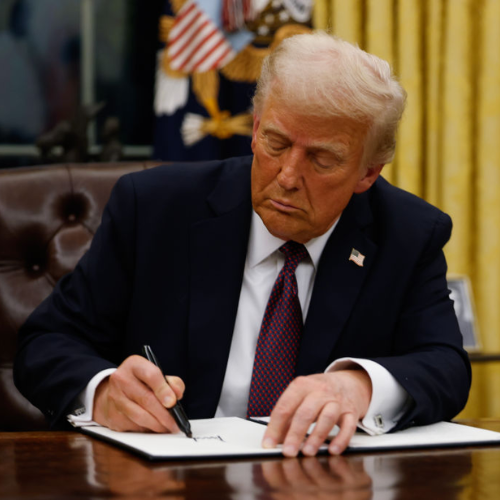In early 2024, President Joe Biden introduced sanctions against certain Israeli settler groups accused of violence against Palestinians in the West Bank. These groups were accused of committing acts that intensified the ongoing conflict in the region. Biden’s decision was part of a broader international effort to bring stability to the area and to hold accountable those who were fueling violence.
The sanctions specifically targeted individuals and groups by restricting financial dealings with the United States. This was meant to pressure the Israeli government to address extremist activities in the West Bank, a region that has long been the focus of tension. Biden’s move was praised by several international allies, who saw it as a positive step toward achieving peace in the area.
The West Bank, which is claimed by both Palestinians and Israelis, has been a hotspot for years, with frequent clashes between the two sides. Biden’s sanctions were designed to send a clear message that violence and extremism would not be supported, even indirectly, by the U.S.
US Targets Israeli Settler Group with Sanctions for West Bank Violence
Trump Cancels the Sanctions
Newly elected President Donald Trump has now revoked the sanctions that were imposed during Biden’s time in office. Trump’s decision to remove these penalties was announced recently on the official White House website. By undoing the executive order put forth by Biden, Trump has lifted the restrictions on U.S. dealings with the Israeli settler groups that were accused of violence.
Biden’s sanctions had been intended to limit these groups’ access to financial resources, effectively cutting them off from U.S. support. The goal was to reduce violence in the region and to encourage a more stable environment.
However, Trump’s decision to reverse these sanctions has lifted the penalties, allowing these Israeli settler groups to resume normal transactions with the U.S. This move has drawn attention, especially given the ongoing tensions in the region.
Concerns Over Rising Tensions
Biden’s sanctions had been welcomed by several Western nations, who were concerned about rising violence in the West Bank. The region has long been marred by violent clashes between Palestinians and Israeli settlers, with both sides frequently engaging in acts of aggression. Biden’s sanctions were seen as a way to prevent the situation from worsening and to maintain hope for a two-state solution, which is a potential path to peace between Israelis and Palestinians.
France Plans New Sanctions on Israeli Settlers for West Bank Violence
Critics of Trump’s decision worry that removing these sanctions could encourage further violence. Some fear that lifting the restrictions might embolden extremist groups and escalate the conflict. The reversal has sparked debate about whether the U.S. will continue to hold those responsible for violence accountable.
Trump’s decision to revoke the sanctions is consistent with his broader policy of fostering strong relations with Israel. During his previous presidency, Trump took several actions that were seen as supportive of Israel, including moving the U.S. embassy to Jerusalem and recognizing Israeli sovereignty over parts of the Golan Heights.
By overturning Biden’s sanctions, Trump is signaling a return to a more permissive approach toward Israeli settler activities in the West Bank. While some in Israel have praised the decision, it has reignited discussions about how the U.S. should approach the ongoing Israel-Palestine conflict.


